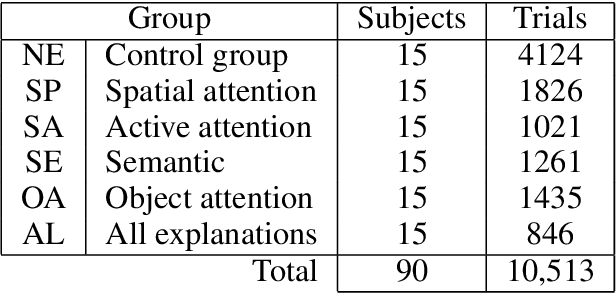A Study on Multimodal and Interactive Explanations for Visual Question Answering
Paper and Code
Mar 01, 2020



Explainability and interpretability of AI models is an essential factor affecting the safety of AI. While various explainable AI (XAI) approaches aim at mitigating the lack of transparency in deep networks, the evidence of the effectiveness of these approaches in improving usability, trust, and understanding of AI systems are still missing. We evaluate multimodal explanations in the setting of a Visual Question Answering (VQA) task, by asking users to predict the response accuracy of a VQA agent with and without explanations. We use between-subjects and within-subjects experiments to probe explanation effectiveness in terms of improving user prediction accuracy, confidence, and reliance, among other factors. The results indicate that the explanations help improve human prediction accuracy, especially in trials when the VQA system's answer is inaccurate. Furthermore, we introduce active attention, a novel method for evaluating causal attentional effects through intervention by editing attention maps. User explanation ratings are strongly correlated with human prediction accuracy and suggest the efficacy of these explanations in human-machine AI collaboration tasks.
 Add to Chrome
Add to Chrome Add to Firefox
Add to Firefox Add to Edge
Add to Edge